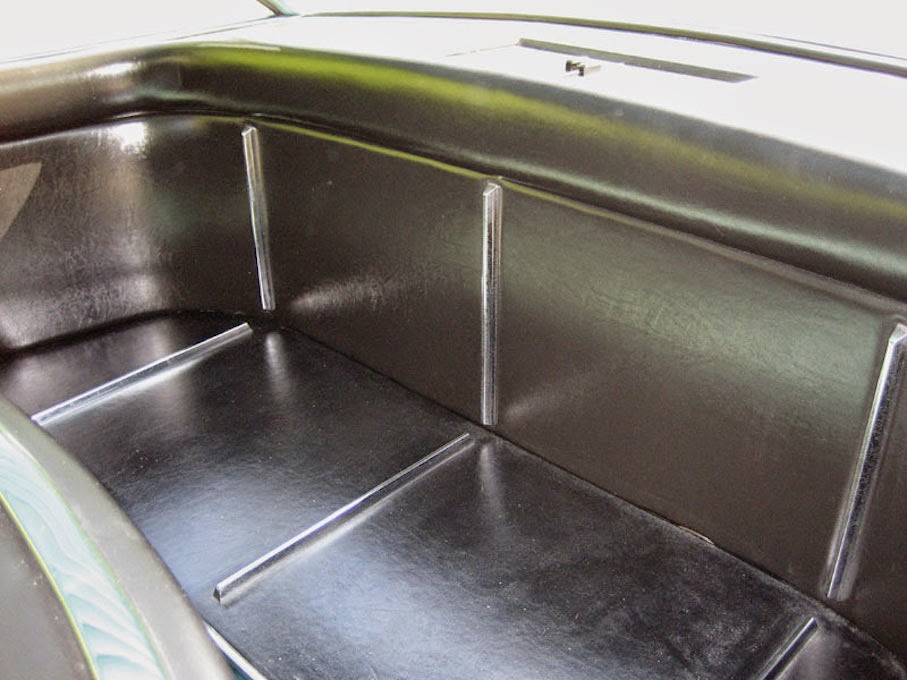After making just 704 ultra-luxurious Eldorado Brougham four-door hard-tops in 1957 and 1958, Cadillac turned to Pinin Farina (as it was spelled then) for 1959-1960. After just 200 Pinin Farina Eldorado Broughams were made, Cadillac was finally ready to pull the plug. But Farina wanted to continue. To pique Caddy's interest, the coachbuilder showed two Brougham proposals of its own at the 1961 Paris Salon de I'Automobile. One was a four-door, the other a two-door hardtop; both were dubbed "Jacqueline," ostensibly in honor of the new American First Lady. Two key elements were absent from the show cars: an engine and Cadillac's trademark fins. Horizontal taillights wrapped into a body-length side cove. The broad grille practically swallowed the headlights. The golden two-door featured a brushed steel roof and no back seat. One-piece buckets were installed in front. (auto.howstuffworks.com)
Either Jacqueline Concepts was put into production. This Coupe version was put into the Pinin Farina museum. It would stay there for more than 30 years and only shown on vary rare occasions. During the mid-nineties, Pininfarina sold their design study from the 1960s and the Jacqueline eventually ended up in the United States. Upon its arrival to the United States, plans began for outfitting it with running gear. Technology and products available during the original period build were used. The chassis was a donated 1960 Eldorado Biarritz with power from a 1959 vintage Series 62 V8 that displaced 390 cubic-inches and provides 325hp. The suspension was comprised of front coil springs, rear leaf springs and hydraulic shock absorbers on all four corners. It was given a working steering system, essential gauges and instrumentation, operating foot pedals, and the appropriate wiring. The task was completed in the late-nineties and it was driven on the road under its own power for the first time. (conceptcarz.com)
Either Jacqueline Concepts was put into production. This Coupe version was put into the Pinin Farina museum. It would stay there for more than 30 years and only shown on vary rare occasions. During the mid-nineties, Pininfarina sold their design study from the 1960s and the Jacqueline eventually ended up in the United States. Upon its arrival to the United States, plans began for outfitting it with running gear. Technology and products available during the original period build were used. The chassis was a donated 1960 Eldorado Biarritz with power from a 1959 vintage Series 62 V8 that displaced 390 cubic-inches and provides 325hp. The suspension was comprised of front coil springs, rear leaf springs and hydraulic shock absorbers on all four corners. It was given a working steering system, essential gauges and instrumentation, operating foot pedals, and the appropriate wiring. The task was completed in the late-nineties and it was driven on the road under its own power for the first time. (conceptcarz.com)
(Photos from conceptcarz.com, autowp.ru, heritageclassics.com and flickr.com)








.jpg)
.jpg)






















